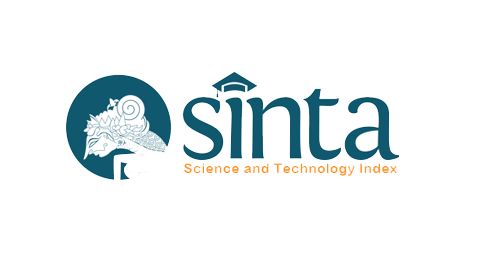Effect of Head Up Position on Oxygen Saturation of Hemorrhagic Stroke Patients at RSUD dr. Soekardjo Tasikmalaya City
DOI:
https://doi.org/10.35568/healthcare.v6i2.4815Keywords:
Head up, Oxygen Saturation, Hemorrhagic StrokeAbstract
Non-communicable diseases are still a health problem of global concern as they are responsible for 74% of deaths globally. One of these non-communicable diseases is stroke. Hemorrhagic stroke can result in increased intracranial pressure so that it can reduce perfusion to brain tissue. One of the nursing interventions for patients with Increased Intra Cranial Pressure is head up 300. The purpose of this study was to determine the effect of head up 300 position on oxygen saturation of Hemorrhagic Stroke patients at RSUD dr. Soekardjo Tasikmalaya City. The research method used is a comparative descriptive method with a cross sectional approach. The population in this study were 48 people. The sampling method used is concecutive sampling which is as many as 9 respondents. Data analysis in this study used the dependent T test because the results of the data normality test showed that the data were normally distributed. The results of the analysis show that the p value is 0.000 which means that there is an effect of head up position 300 on oxygen saturation of Hemorrhagic Stroke patients at RSUD dr. Soekardjo Tasikmalaya City. Suggestions based on the results of this study are that head up 300 nursing interventions are effective in increasing oxygen saturation in Hemorrhagic Stroke patients.
Downloads
References
Abdu, h., & seyoum, g. (2022). Sex differences in stroke risk factors, clinical profiles, and in-hospital outcomes among stroke patients admitted to the medical ward of dessie comprehensive specialized hospital, northeast ethiopia. Degenerative neurological and neuromuscular disease, volume 12(october), 133–144. Https://doi.org/10.2147/dnnd.s383564
American stroke association. (2021). F.a.s.t. Warning signs. Https://www.stroke.org/en/about-stroke/stroke-symptoms
American stroke association. (2024). Types of stroke and treatment. Https://www.stroke.org/en/about-stroke/types-of-stroke
Ekacahyaningtyas, m., setyarini, d., agustin, w. R., & rizqiea, n. S. (2017). Posisi head up 30 derajat sebagai upaya untuk meningkatkan saturasi oksigen pada pasien stroke hemoragik dan non hemoragik. Adi husada nursing journal, 3(2), 55–59.
Gbd 2019 diseases and injuries collaborators. (2020). Stroke — level 3 cause. The lancet, 396, 4–5.
Kementerian kesehatan ri. (2018). Hasil utama riset kesehatan dasar tahun 2018. Kementrian kesehatan republik indonesia, 1–100. Https://doi.org/1 desember 2013
Kementrian kesehatan republik indonesia. (2018). Apa itu stroke ? Https://p2ptm.kemkes.go.id/infographic-p2ptm/stroke/apa-itu-stroke
Kementrian kesehatan republik indonesia. (2019). Kenali slogan “segera ke rs” untuk mengetahui gejala dan tanda-tanda stroke. Https://p2ptm.kemkes.go.id/infographic/kenali-slogan-segera-ke-rs-untuk-mengetahui-gejala-dan-tanda-tanda-stroke
Medline plus. (2023). Increased intracranial pressure. Https://medlineplus.gov/ency/article/000793.htm
Murphy, s. J., & werring, d. J. (2023). Stroke: causes and clinical features. Medicine (united kingdom), 51(9), 602–607. Https://doi.org/10.1016/j.mpmed.2023.06.003
Pakaya, a. W., & nurliah, n. (2021). Efektivitas model elevasi kepala antara 30o dan 45o terhadap peningkatan saturasi oksigen pada pasien stroke iskemik di rsud dr.mm. Dunda kabupaten gorontalo. Zaitun (jurnal ilmu kesehatan), 8(2), 805. Https://doi.org/10.31314/zijk.v8i2.1101
Pertami, s. B., munawaroh, s., & dwi rosmala, n. W. (2019). Pengaruh elevasi kepala 30 derajat terhadap saturasi oksigen dan kualitas tidur pasien strok. Health information : jurnal penelitian, 11(2), 133–144. Https://doi.org/10.36990/hijp.v11i2.133
Rsu bunda jakarta. (2022). Stroke hemoragik vs stroke iskemik: kenali perbedaannya! Https://bunda.co.id/artikel/kesehatan/emergensi/stroke-hemoragik-vs-stroke-iskemik-kenali-perbedaannya/
Setiawan et al. (2021). Diagnosis dan tatalaksana stroke hemoragik. Jurnal medika utama, 02(01), 402–406.
Tim kerja hukum dan humas rs sardjito. (2021). Mengenal deteksi dini gejala stroke. Https://sardjito.co.id/2021/12/31/mengenal-deteksi-dini-gejala-stroke/
Tim pokja dpp ppni. (2017). Standar diagnosis keperawatan indonesia: definisi dan indikator diagnostik edisi 1. Persatuan perawat nasional ndonesia.
Tim pokja siki ppni. (2018). Standar intervensi keperawatan indonesia (siki). Persatuan perawat nasional ndonesia.
Tim pokja slki dpp ppni. (2018). Standar luaran keperawatan indonesia (slki). Persatuan perawat nasional ndonesia.
Trisila, mukin, f. A., & dikson, m. (2022). Pengaruh pemberian posisi head up 30 derajat terhadap saturasi oksigen pada pasien stroke di igd rsud dr. T.c. Hillers maumere kabupaten sikka. Jurnal ilmiah wahana pendidikan, 8(16), 664–674. Https://doi.org/10.5281/zenodo.7117769
Widarti, l., sulystiono, d., masyfahani, m. A. H., maemonah, s., & intiyati, a. (2023). Literature review: effect of 30° head up position intervention on increased cerebral tissue perfusion in hemorrhagic stroke patients (issue icohps). Atlantis press international bv. Https://doi.org/10.2991/978-94-6463-324-5_66
World health organization. (2023). Noncommunicable diseases: key facts. Https://www.who.int/news-room/fact-sheets/detail/noncommunicable-diseases
Downloads
Published
Issue
Section
License
Copyright (c) 2024 The Author(s)

This work is licensed under a Creative Commons Attribution 4.0 International License.

















